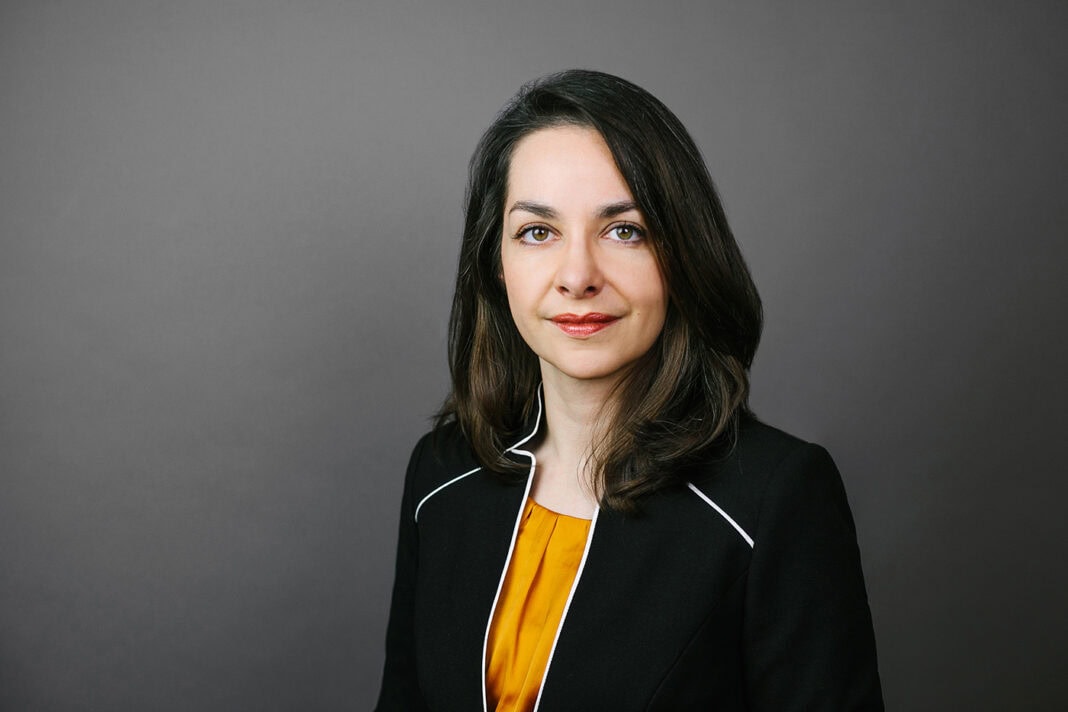This time, our five questions go to Lisa Fellhofer, Director of the Documentation Center for Political Islam. We spoke to the political scientist about Islamist influencers, the ideology of the Hamburg caliphate callers and Islamist movements in Austria.
Ms. Fellhofer, throughout history there have been different caliphates, from politically strong to purely representative ones to the caliphate of the Islamic State in Iraq and Syria. Which caliphate is the Hamburg-based Muslim Interactive network referring to and why is this a problem?
Influencer groups such as Muslim Interactive, as well as Reality Islam and Generation Islam, can be assigned to the ideological environment of the Islamist Hizb ut-Tahrir, which was founded in Jerusalem in 1953. The pan-Islamic movement calls for the reintroduction of a caliphate and wants to give Sharia law a comprehensive scope of application. It also calls for the overthrow of the governments of Muslim states and aims to unite all Muslims without national borders. This system follows the ideas of a system of rule and society as it is said to have existed in the early days of Islam and has also been fleshed out by the organization in a draft constitution. The Islamic system called for is headed by a caliph and competes with existing nation states. According to the ideology of the Islamist movement, the pluralistic democratic constitutional state is not compatible with “Islam” and is rejected, as is the state of Israel, which is denied the right to exist. Hizb ut-Tahrir has been banned from operating in Germany since 2003. Groups such as Muslim Interactive are regarded as ideologically affiliated networks.
Is the Muslim Interaktiv network also represented in Austria and are there other groups that belong to the Hizb ut-Tahrir movement or other radical Islamic movements?
Even though Muslim Interaktiv, Realität Islam and Generation Islam are located in Germany, the entire German-speaking region is reached via social media channels. In the past, these networks have also repeatedly focused on Austria. In some cases, the reach of the videos has already exceeded one million views, which demonstrates the enormous appeal of the influencers in question. In addition to the aforementioned groups, there are a number of other actors in Austria with various links to Islamist movements. Political Islam structures operate across national borders and have their origins in Turkey, the MENA region or Iran, for example. These include the Millî Görüş movement, the Grey Wolves, the Muslim Brotherhood, Salafist groups and Shia Islamist actors from the environment of the theocratic government in Tehran. https://militaeraktuell.at/5-sichten-auf-die-welt-004-was-war-was-ist-was-wird/
Do you see any parallels between the Muslim Interactive network and groups such as the state rejectionists, who also reject the state and its institutions?
Extremisms of different ideologies often come together in conspiracy narratives and anti-Semitism. It is not only since the Hamas attack on Israel on 7 October 2023 that Jewish people have been equated with the state of Israel and negative, generalized stereotypes have been spread. There is also a tendency to organize themselves away from state institutions and the majority society, which encourages segregation. In these aspects, state rejectionists and some Islamist milieus overlap ideologically.
“The Muslim community is often the first to come under pressure from political Islam or Islamist groups.”
What role could Muslim organizations such as the Islamic Religious Community in Austria (IGGÖ) play in getting a better grip on the challenges surrounding radicalization?
The Muslim community is often the first to come under pressure from political Islamists or Islamist groups. Having contact persons in the affected communities who take the challenges of radicalization seriously can therefore be an important factor. However, this also means that an honest debate on the problems must be allowed.
“Current crises have exacerbated social polarization and radicalization tendencies in Europe as a whole.”
Do you see a general strengthening of radical Islamic groups in Germany and Austria, or have people just become more aware of such developments?
Current crises have exacerbated social polarization and radicalization tendencies in Europe as a whole. The Hamas terror attack on October 7, 2023 and the subsequent war in the Gaza Strip have made Islamist movements and ideologies more visible. For some time now, the Israeli-Palestinian conflict has served the various Islamist actors as a vehicle for undifferentiated generalization and as a pretext for propagating extremist messages. These now find approval and dissemination on various levels, including the online social networks TikTok, Instagram and YouTube with their young target groups. In the virtual space, Islamist influencers have built up a counter-public that instrumentalizes identity conflicts, for example by ideologically charging experiences of discrimination against – often young – Muslims with an “us versus them” narrative.
Click here to read the other articles in our “5 questions to” series.











